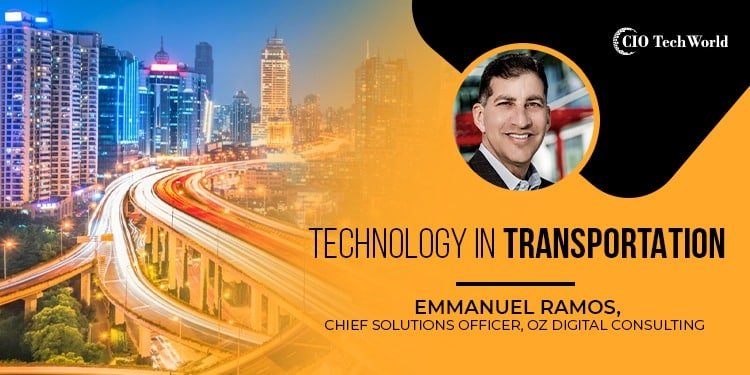Technology in transportation is a dynamic field, witnessing an unprecedented pace of innovation and disruption. As industry experts, we are at the forefront of these changes, navigating through advancements such as autonomous vehicles, high-speed underground travel, aerospace innovations, and more.
We will delve into Elon Musk’s ventures – The Boring Company and SpaceX – to understand their impact on transit systems. We’ll explore how autonomous vehicles are revolutionizing the automotive industry with real-time data usage and key players driving this change.
Furthermore, we’ll discuss electric vehicles as a sustainable solution for personal transport. We’ll also touch upon compact aircraft development trends along with the potential impacts of hyperloop technology on our transportation system.
In light of recent global events like the COVID-19 pandemic’s influence on public transport or integration challenges for new technologies in existing infrastructures; it becomes crucial to comprehend how technology works to transform passenger experience during air travel while ensuring security.
We will also look at internet penetration and smartphone accessibility that are changing passengers’ habits along with Japan’s emerging as a hub for personalized transport tech. Let us embark on this journey together to unravel the future of transportation technology.
The Impact of Elon Musk’s Boring Company and SpaceX on Transportation
Elon Musk’s Boring Company and SpaceX are changing the game in transportation. The Boring Company is digging tunnels for high-speed underground car travel in LA, beating traffic one mile at a time.
Underground travel with the Boring Company
Their tunneling technology is so advanced, it’s like a wormhole for cars. Say goodbye to traffic and hello to a faster commute.
Space exploration with SpaceX
SpaceX is taking us to infinity and beyond with reusable spacecraft. It’s like having a space Uber, but way cooler.
Revolutionizing the Auto Industry with Autonomous Vehicles
The auto industry is getting a major facelift thanks to self-driving cars. Leading the charge of revolutionizing the auto industry are tech giants such as Google, Waymo, Uber, Tesla, and Ford with their self-driving cars that utilize real-time data to calculate surroundings and make quick decisions. These cars use real-time data to assess their environment and make decisions quickly, leading the way for a new era of transportation.
The Power of Real-Time Data in Self-Driving Cars
Real-time data is the backbone of autonomous vehicles. It helps them detect pedestrians, identify road signs, and respond to their environment in real time.
Driving Innovation: Meet the Major Players
These big names are shaking things up in the auto industry by pushing boundaries and challenging traditional concepts of transportation.
Electric Vehicles: The Sustainable Solution for Personal Transport
Electric vehicles (EVs) are changing the game for personal transport. They’re advantageous, cost-efficient, and environmentally friendly. Plus, they’re just plain cool.
Why EVs are Better than Traditional Last-Mile Transports
EVs have a lot of advantages over traditional last-mile transports. EVs boast fewer pollutants, reduced operational costs, and increased energy efficiency compared to traditional last-mile transports; this has made them a popular choice for urban transportation. That’s why they’re rapidly becoming the favored option for city commuting.
The Sustainability Factor Driving EV Adoption
One of the biggest reasons people are switching to EVs is sustainability. With zero emissions and the potential for renewable energy integration, they’re a key part of the solution to global sustainability goals.
Revolutionizing Urban Mobility with Compact Aircraft and Hyperloop Technology
Get ready to soar above the traffic. Compact aircraft for intra-city travel are taking off, promising to reduce congestion and commuting times. With over 20 companies worldwide developing these flying machines, the future of urban mobility is looking up.
Faster Than a Speeding Train: Hyperloop Technology
Hyperloop technology is another game-changer in transportation. This high-speed system could connect cities faster than ever before, revolutionizing our perception of distance and time. Plus, it has the potential to reduce carbon emissions and transform logistics operations.
Challenges Ahead
Of course, with any new technology comes challenges. Integrating these innovations into existing infrastructures and navigating regulatory hurdles will require careful planning and execution.
Ready for Takeoff
Are you eager for the upcoming advancements in transportation? Buckle up and get ready for takeoff with compact aircraft and hyperloop technology.
Impact of COVID-19 on Public Transit Systems
The pandemic changed how we view public transit. Now, we want to stay safe and healthy while commuting. This led to funding for sustainable transportation solutions that make sense for everyone.
Shift to Micromobility
People are ditching crowded buses and trains for e-bikes and scooters. Getting around while maintaining a safe distance from others is an intelligent choice.
Controlling Passenger Flow
Technology is helping us monitor and control passenger flow to prevent overcrowding. It’s a win-win for everyone.
Post-Pandemic Changes
Even after the pandemic, we’ll still be mindful of our personal space and hygiene. So, expect more changes to public transit systems in the future.
Integrating New Tech into Existing Infrastructures: Challenges & Solutions
Implementing new tech into existing infrastructures can be a challenge, but careful planning and investment in simulation software can help facilitate the process. But with careful planning and investment in simulation software, we can predict costs and ensure a smooth transition.
Understanding Infrastructure Needs
Successful integration requires understanding the specific needs of each system. Autonomous vehicles need advanced traffic management, while e-bikes need dedicated lanes for safety.
Policy Changes
Regulations must evolve alongside technology to create an environment that fosters innovation while safeguarding the public interest.
Embracing Change
Change is crucial, but strategic planning is equally important for the seamless integration of these exciting advancements.
Revolutionizing Air Travel: How Technology Enhances Passenger Experience and Security
Technology has transformed air travel, making it more efficient, secure, and enjoyable. Hi-tech baggage handling systems and robotic assistants are just a few examples of how technology has improved the passenger experience.
Efficient Luggage Management
SITA’s 2023 Baggage IT Insights report shows how innovative technologies have reduced mishandled bags by over 60% in the past decade. Passengers can now relax knowing their baggage is safe and secure with the help of modern tracking technology and automated sorting systems.
Robotic Assistants
Airports are increasingly using robotic assistants for tasks ranging from cleaning and disinfection to customer service. These robots not only enhance safety measures amidst ongoing health concerns but also ensure a smoother journey for passengers.
Enhanced Security Measures
Technology has also improved security measures at airports. Biometric identification systems, such as facial recognition and fingerprint scanning, have made the security screening process faster and more accurate.
Thanks to technology, air travel has become more efficient, secure, and enjoyable. With further advancements on the horizon, the future of air travel looks promising.
Revolutionizing High-Speed Rail Networks with Advanced Engineering
The world of high-speed rail has transformed with advanced engineering. Bullet trains have made inter-city travel faster and more efficient. Japan and China are leading this evolution.
The Future of High-Speed Rail
Maglev technology promises even more exciting developments. This innovation uses magnetic levitation for faster and smoother rides than traditional trains.
Challenges and Solutions
Implementing these sophisticated systems into existing infrastructures poses challenges. However, many countries are exploring these technologies to provide efficient transportation solutions that meet growing passenger demands while reducing environmental impact.
Internet and Smartphones Changing Transportation Habits
The internet and smartphones have revolutionized transportation habits. Ride-sharing apps are now more popular than cycling, walking, or public transportation. Electric hybrids are becoming a more prevalent option as an eco-friendly alternative to standard vehicles. Autonomous vehicles are making progress, despite facing difficulties.
Japan Leading the Way in Personalized Transport Tech
Japan is at the forefront of personalized transport technology, with hoverboards, e-bikes, and motorized scooters providing flexibility in navigating urban landscapes.
Japan: The Hub for Personalized Transport Tech
Japan’s technological prowess is paving the way for the next wave of personalized transport tech. Hoverboards, e-bikes, and motorized scooters are providing users with increased flexibility in navigating dense urban landscapes.
Efficient and Sustainable Solutions
The nation’s dedication to pioneering advanced technology has brought forth a surge of firms devoted to developing more efficient and sustainable transportation solutions. Startups like Gogoro’s electric scooters are designed to reduce carbon emissions, while established brands like Yamaha are launching their own line of high-tech e-bikes.
Shaping a Sustainable Future
This shift towards personalized transport tech is not only changing how people commute but also shaping Japan’s approach toward achieving a more sustainable future. With a focus on innovation and sustainability, Japan is leading the way in the transportation industry.
Conclusion
Revolutionary technology is transforming the transportation industry, with innovations like Elon Musk’s Boring Company and SpaceX, electric vehicles, and compact aircraft development.
Real-time data use in autonomous vehicles and high-speed rail networks is improving passenger experience and safety measures during air travel.
Japan is becoming a hub for personalized transport tech, as internet penetration and smartphone accessibility continue to change passengers’ habits.
Read more articles by Emmanuel Ramos:
Achieving Tech Transformation Success: A Comprehensive Guide
Metaverse – Is it the Final Frontier for Business Innovation?

As a visionary Business and Technology Leader, I bring a proven track record of driving innovation, fostering collaboration, and delivering exceptional results in fast-paced and dynamic environments. I have honed outstanding skills in articulating a compelling vision and rallying active support from internal executives, development teams, and client business and IT leadership. I am proud to be a member of both the Forbes Technology Council and HITEC (Hispanic Technology Executives Council), which underscores my commitment to being at the forefront of industry trends and developments.
My special talent is demonstrating value to clients at all touch points – I instill these concepts in my teams.









